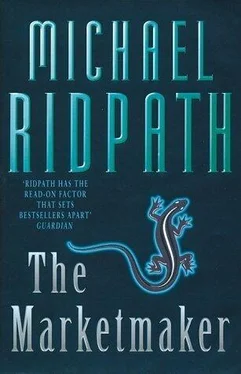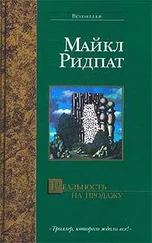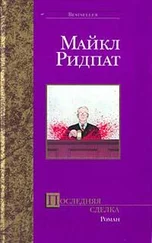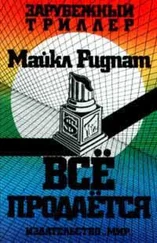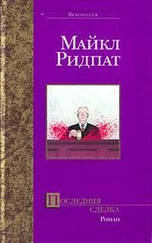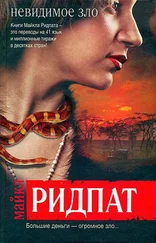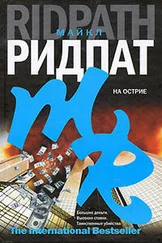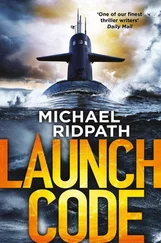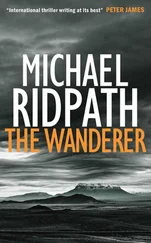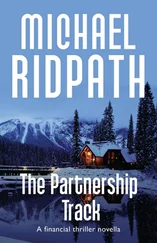It was a collection of white-painted houses with orange rooftops and bright blue doors, nestling at the head of a valley. Sheep grazed meadows on either side. Euclides led us out of the village and over a bridge and then told us to stop. A poorly metalled road branched off to the right, and wound up the hillside, through the sheep pasture. It passed two small farms, and seemed to peter out near the top of the hill, at a single small white building.
He pointed to it. ‘ La ,’ he said.
We drove back to Rio in heated discussion.
‘We have to go to the police,’ said Nelson. ‘We have no choice. It’s Monday today. The final bid for Dekker Ward will be decided on Wednesday. We must free her before then.’
‘But you know what happened last time,’ I protested. ‘The kidnappers were tipped off. Isabel was almost killed. They will definitely kill her this time.’
‘There’s a risk. I know there’s a risk. But the Rio police have a lot of experience.’
‘Oh, come on. I bet they’ll burst in, guns blazing, shoot all the kidnappers, and hope that Isabel is the only one left alive.’
‘I tell you, Nick, it can work. If they have surprise.’
‘But they won’t have surprise, will they? Some little policeman will tip the kidnappers off.’
‘I’ll talk to Da Silva. We won’t tell the police who it is we’re freeing until the last moment. There are a dozen kidnap hostages hidden somewhere in Rio today. If there is a policeman passing on information, he won’t know which one we are targeting until it’s too late.’
We drove on in silence, Euclides in the back, listening closely to the argument even though he didn’t understand it.
‘Look,’ said Nelson. ‘I know how you feel. But if we leave Isabel where she is she’ll probably be killed. If the police go in to get her she has a better chance of survival. It’s as simple as that. We’ll talk to Luís when we get back, and then I’ll phone Da Silva.’
I didn’t reply. I knew he was right. Either way there was a good chance that Isabel would die. I couldn’t avoid that. All I could do was watch while Luís made the most logical decision: send in the police.
Of course, this had been implicit the whole time we had been looking for Isabel. The unspoken assumption was that we would get her out once we found her. But then the idea of finding her had given us a glimmer of hope. Now that we knew where she was, and a rescue attempt seemed inevitable, all the risks that that involved suddenly became much more apparent.
I thought of Ricardo and Eduardo and felt a surge of anger. They were responsible for this. Together with Francisco. He was a father. How would he feel if it were his son in that farmhouse, with only a day or two to live?
Of course!
‘Nelson, I have an idea.’
He sighed. ‘Another one. We’re running out of time for ideas.’
‘No, listen. This one will work.’
We were a ramshackle gang. Cordelia was at Luís’s apartment by the phone. Nelson, his associate Ronaldo, Euclides and I were in the car, one of two Nelson had bought the evening before from a car thief he knew. And Luís himself was in London at the Savoy Hotel, praying for our success. Nelson, Ronaldo and I had guns. We had let Euclides come with us as long as he left his treasured gun behind. He might turn out to be useful.
I had never carried a handgun before. It was stuffed in the belt of my jeans, under a loose sweatshirt. It was heavy. The metal, at first cold, had been warmed by my body. Nelson had quickly shown me how to fire it, but the idea was that I should only use it in an emergency.
I was scared. Now I was truly risking my own life as well as Isabel’s. But I also felt elated. For the first time, I felt I was doing something positive that might actually get her released. Nelson was cool, deliberate, tense. Ronaldo stared stolidly ahead, watching the traffic drive by. Slight, with an unremarkable crumpled black face and a wispy moustache, he was a former colleague of Nelson’s in the Rio police force.
The car was parked down the road from Francisco’s house. This wasn’t going to be a well-planned snatch. It didn’t have to be. Speed was of the essence, here. We had no need to keep our identity secret, or escape detection. There was little chance of police involvement. But we did need to achieve a resolution quickly.
It was Tuesday morning. The sun was still low enough in the winter morning sky to throw shadows across the road. At six thirty as usual, the gates to Francisco’s house opened and a little grey Renault edged out. There was occasional traffic on this road. Someone would see us, but Nelson was sure that the most likely response of the average Brazilian motorist would be to drive on.
As the Renault turned left down the hill, Nelson started his engine. He accelerated across the road, smashing into the other car with a jolt, driving it into the wall. The seat-belt bit into my chest and shoulders on impact. I quickly released it and leaped out of the car. Nelson had already pulled open the door of the Renault. Francisco filho hadn’t been wearing a seat-belt, and had hit his face on the steering wheel. There was blood on his mouth and he was dazed. Ronaldo and Nelson dragged him out of the Renault, and I ran to the other car we had parked a few yards down the road. Euclides had the boot open, and we bundled the kid in before he knew what was happening. Then we were in the car and off.
I had noticed several vehicles drive past during all this, but as Nelson had expected, none of them had stopped. Neither had I seen anyone run out of Francisco’s house just up the road.
Ronaldo drove fast and accurately, a typical Ayrton Senna in Rio’s morning traffic. Nelson pulled out his mobile phone and told Cordelia we had the boy.
The car banged and rocked, especially when we stopped at traffic lights. Sitting in the back, I could hear muffled shouts. But the commuting cariocas around didn’t seem to hear, or if they did, they took no notice.
It seemed to take us for ever to get out of Rio. Although we were generally going in the opposite direction to Rio’s rush hour, we had planned on a slow journey. But it added to the tension. I sat stiff in the back seat, my hands clasped tightly together, the gun biting into my thigh. Nelson and Ronaldo seemed perfectly calm in the front. Euclides sat next to me with shining eyes and a big smile. None of us said a word.
An hour later, as we were finally beginning to break free of Rio, Nelson’s phone chirped. He answered it, spoke for a few seconds and put it down.
‘Cordelia has contacted Francisco.’
‘What did he say?’
‘He said he needed time to think. He said it might be a set-up. Cordelia said if we wanted to kill him, there would be many easier ways. She gave him ten minutes.’
Oh, God. We needed Francisco to respond immediately. A prolonged stand-off would be much harder to deal with. The families of kidnap victims were advised to be cautious about accepting kidnappers’ first demands as Francisco would well know. But we weren’t asking him for money. We merely wanted him to go somewhere to pick up a message.
The ten minutes ticked slowly past. It was fifteen before Cordelia called back.
Nelson listened quickly and grinned. ‘He’s agreed,’ he said. ‘He’s taking a mobile phone so Cordelia can stay in touch with him.’
We were out of the city now, and heading up into the hills. After half an hour, we reached an empty stretch of road about twenty kilometres from Sao Jose. We stopped in a lane just off the road, with a clear view down a hill to a petrol station, bearing the by now familiar orange and green insignia of Petrobrás. Cordelia would instruct Francisco to park on the forecourt, and wait for a further message. The two men working the pumps had been paid to see nothing.
Читать дальше
